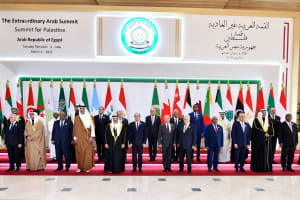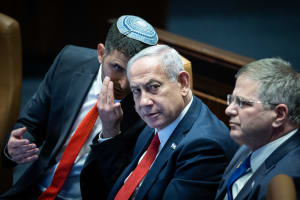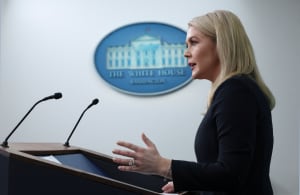'Iran is still the spearhead of regional instability,' says director of Israel Atomic Energy Commission

Israel Atomic Energy Commission Dir.-Gen. Moshe Edri warned on Tuesday that Iran’s military nuclear program and long-range missiles constitute a security threat to the Middle East and the entire international community.
“Iran is still the spearhead of regional instability and is a threat to peace and security worldwide, stated Edri during his address at the 67th International Atomic Energy Agency (IAEA) General Conference in the Austrian capital of Vienna.
“There is no doubt that Iran conducted a military nuclear program aimed at producing several nuclear weapon devices. Iran continues to advance this program by gaining relevant technology and knowledge, along with fissile material in alarming amounts," he added.
The Israel Atomic Energy Commission (IAEC) chief stressed that preventing Tehran from acquiring nuclear bombs demands the “full attention of the international community.”
Edri reminded the the IAEA, the United Nations nuclear watchdog, that it had discovered tangible evidence of systematic Iranian nuclear violations.
“Iran has been conducting covert nuclear activities in undeclared sites for many years. The Agency found concrete evidence of these activities, including the use of undeclared material,” he said.
In February, the agency’s inspectors raised the alarm that Iranian uranium enrichment was dangerously close to nuclear bomb capability.
“The IAEA is aware of recent media reports relating to uranium enrichment levels in Iran,” the agency announced at the time.
The Iranian ayatollah regime officially denies that it seeks to acquire nuclear weapons, claiming that its nuclear program is merely designed for civilian peaceful purposes.
The regime has invested billions of dollars in hiding much of its covert nuclear program in vast and well-defended underground facilities.
Israeli Prime Minister Benjamin Netanyahu has warned about the Iranian nuclear threat for many years. While Netanyahu has indicated that he prefers a diplomatic solution to the Iranian nuclear threat, he has repeatedly stressed that diplomacy needs to be combined with biting economic sanctions and a credible military threat in order to deter Tehran from crossing the nuclear weapons threshold.
In his latest address to the UN General Assembly in New York last week, Netanyahu mistakenly stated that Iran must face a nuclear threat rather than a conventional military threat.
“Western powers promised that if Iran violated the nuclear deal, the sanctions would be snapped back… sanctions must be snapped back, and above all, Iran must face a credible nuclear threat,” the Israeli premier said.
Iran’s ambassador to the United Nations, Amir Iravani, blasted Netanyahu’s “alarming and serious threat... to make use of nuclear weapons against Iran.”
The Prime Minister’s Office in Jerusalem released a short statement after Netanyahu’s speech, stressing that the Netanyahu meant to say that Iran must face a “credible military threat,” an expression that he has frequently in past statements.
Historically, Israel and Iran enjoyed close diplomatic ties until the Islamic Revolution in 1979 transformed Iran into an implacable enemy to the Jewish state.
Israeli leaders including Netanyahu have stressed that there is no conflict between Israel and the Iranian people and that the conflict is with the regime.
In his latest UNGA address, Netanyahu praised the courage of Iranian women and men who oppose the ayatollah regime.
“Equally, we should support the brave women and men of Iran who despise this regime and yearn for freedom, who’ve gone out bravely on the sidewalks of Tehran and Iran’s other cities and face death,” Netanyahu said. “It is the people of Iran, not their oppressors, who are our real partners for a better future.”

The All Israel News Staff is a team of journalists in Israel.













